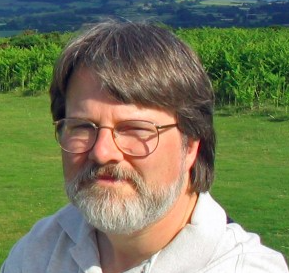Time: 12:00 AM
Location:
DATE: Friday, 17 July
TIME: 2.30pm – 4pm,
VENUE: CB08.08.002
Gardner Campbell (Virginia Commonwealth University Vice-Provost for Learning Innovation & Student Success) will be spending the day at CIC on Fri 17th July, with a seminar 2.30-4pm, CB08.08.002.
Gardner brings an uncommon depth and breadth of thinking about the future of the university and the role of technology — check out his often provocative blog for a flavour. He will run a seminar which calls us back to the founding vision of computing pioneers such as Vannevar Bush and Doug Engelbart, intellectual heroes for many of us in human-centred computing:
From the Memex to the World Wide Mind: Reawakening the Digital Imagination
The engineers who built the digital age imagined a liberating environment of shared associative trails, augmented human intellects, and collaborative knowledge-construction. What happened to their dreams of how the world could be? Are they still relevant in 2015? If so, how might those dreams inform and inspire innovation within online learning? This presentation examines these questions and suggests some ways in which contemporary approaches to online learning might better serve the learner–and our world.
Bio: W. Gardner Campbell is Vice Provost for Learning Innovation and Student Success, Dean of University College, and Associate Professor of English at Virginia Commonwealth University. Before coming to VCU, Gardner was Senior Director for Networked Innovation in the Division of Technology-Enhanced Learning & Online Strategies (TLOS) at Virginia Tech, where he also served as an Associate Professor of English. Prior to his appointment at Virginia Tech, Gardner was founding Director of the Academy for Teaching and Learning at Baylor University, as well as Associate Professor of Literature, Media, and Learning in the Honors College. Before coming to Baylor, he was Professor of English at the University of Mary Washington, where from 2003-2006 he also served as Assistant Vice-President for Teaching and Learning Technologies. He has been involved in teaching and learning technologies for over two decades.
Gardner received his B.A. in English from Wake Forest University, and his M.A. and Ph.D. in English from the University of Virginia. He is a Fellow of the Frye Leadership Institute (2005). From 2009-2012, Gardner was on the Board of Directors of the New Media Consortium (Vice-Chair, 2010-2011, Chair 2011-2012). He has also served on the EDUCAUSE Learning Initiative Advisory Board (2007-2011) and the Advisory Board of the National Institute for Technology in Liberal Education (2011-2013).
Gardner is a life member of the Milton Society of America (Executive Committee, 2004-2007). For six years, he served as a contributing editor for Literature/Film Quarterly. He has presented at numerous national and international conferences on Renaissance literature, film, and teaching and learning technologies. Recent presentations include keynote or plenary presentations at the Online Learning Consortium Emerging Technologies conference, the AMICAL conference at John Cabot University in Rome, the annual meeting of the Directors of Educational Technology for the California Higher Education system (DET/CHE), the University of Santa Clara, Carleton College, Open Education 2012, Union College, Northhampton Community College, Boston College, and many others in the US as well as Canada and Sweden. His essay on “Temptation” appeared in 2014 in the Cambridge Companion to Milton’s “Paradise Lost.” Other publications include scholarly articles on Milton’s poetry and prose (Duquesne University Press, MLA Press), an essay in the curated print and online editions of “Hacking the Academy” (University of Michigan Press), an analysis of Orson Welles’ work in the 1944 film of “Jane Eyre” (Literature/Film Quarterly), separate essays on personal cyberinfrastructures, faculty development, and podcasting (EDUCAUSE Review), and an essay on information technologies in higher education (Change). You can read Gardner’s blog, “Gardner Writes,” at www.gardnercampbell.net
